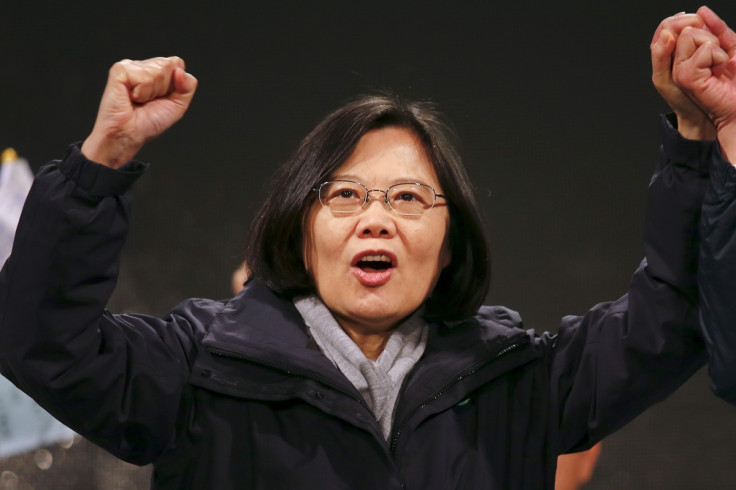China asks US to not allow transit by Taiwan President Tsai Ing-wen
Tsai will visit Guatemala, Nicaragua and El Salvador next month.
China has urged the US to not allow Tsai Ing-wen to transit New York on her to way to Central American countries, triggering another adverse response from the communist country ever since Donald Trump held a telephonic conversation with Taiwanese President.
Beijing is said to be deeply suspicious of Tsai thinking she is pushing for a formal independence of her island nation. She is expected to visit Taiwan's diplomatic allies – Guatemala, Nicaragua and El Salvador next month. Taipei has not formally confirmed her trip but it has been speculated that she could stop over in New York.
Responding to this possibility, China's foreign ministry on Tuesday (6 December) said: "As for the issue you raise of a 'transit' in the United States by the leader of the Taiwan region, her real aim is self-evident."
Beijing hopes Washington "does not allow her transit, and does not send any wrong signals to 'Taiwan independence' forces," Reuters cited the ministry as saying. It added that "one China" was widely recognised by the international community.
The speculation was triggered after Taiwan's Liberty Times reported on Monday that Tsai was planning to stop over in New York on her way to the Central American countries. The newspaper is considered close to the president's ruling Democratic Progressive Party, a pro-independence party.
Taiwan's Presidential Official commented on the media reports and called it as "excessive speculation". The foreign ministry spokeswoman Eleanor Wang said it would give details about Tsai's trip at an appropriate time.
El Salvador government too confirmed Tsai's visit in the second week of January but gave no further details.
Tsai is scheduled to be in transit before Trump's inauguration on 20 January and it has been reported that her delegation would seek to meet Trump's transition team.
China is already irked with Taiwan for speaking to the US president-elect over the telephone last week. Since then, Beijing has been wary of Taipei's movements, especially where it involves Washington as China regards the self-governing island nation as a renegade province.
Tsai's call with Trump on 2 December was the first by a US president-elect or president with a leader from Taiwan as the White House switched recognition to China from Taiwan in 1979.
On Monday (5 December), the White House sought to control the damage by reassuring its ties with China and its "long-standing" commitment to the 'one China' policy.

© Copyright IBTimes 2024. All rights reserved.





